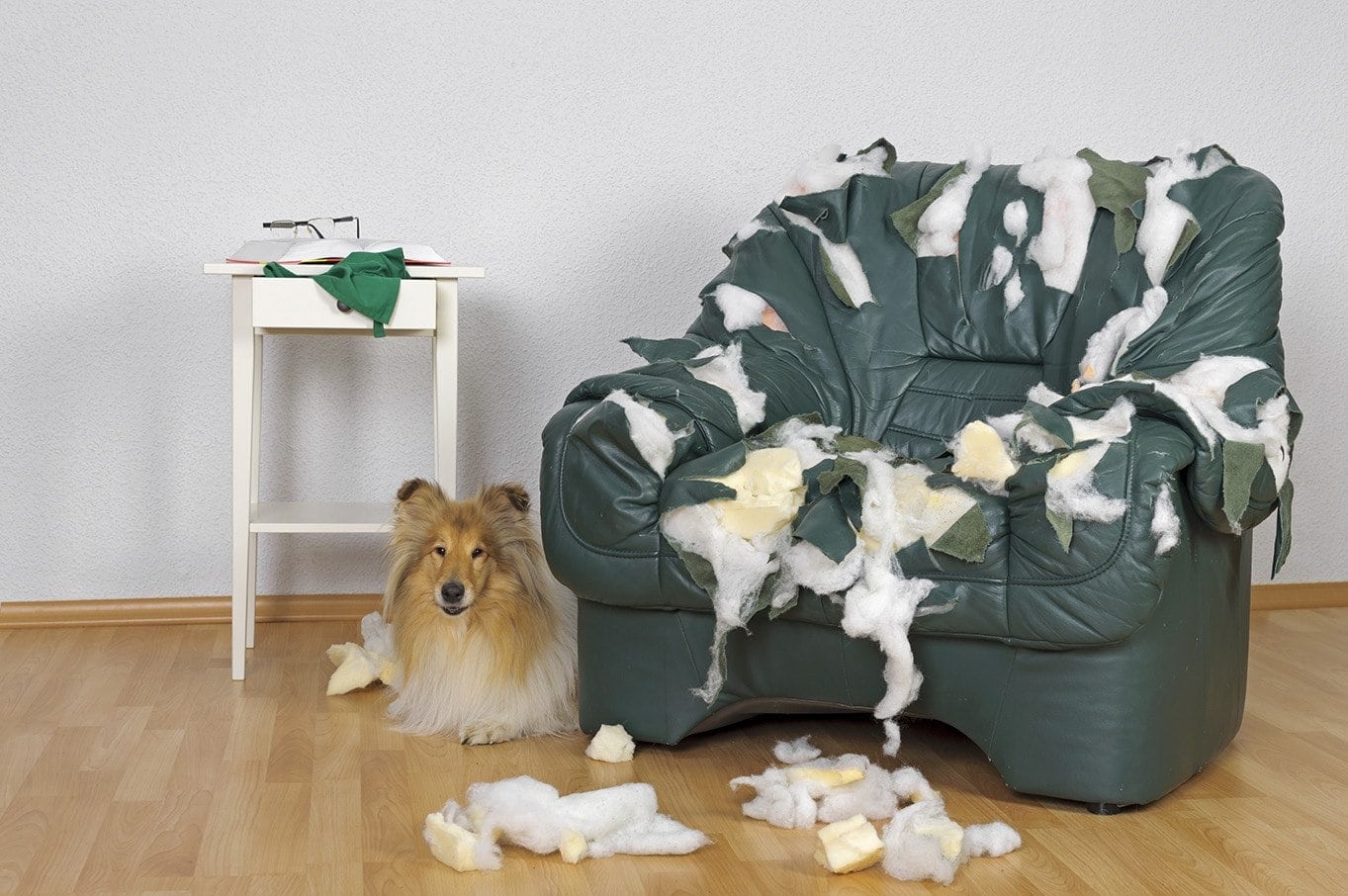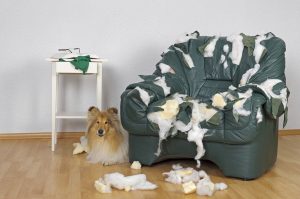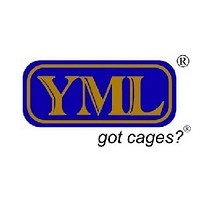10 Ways to Prevent an Alone Dog from Destroying the Couch


Many dog owners are baffled as to how to keep their pets from damaging their couches. Dogs may chew the sofa for a variety of reasons, as we’ve seen. As a result, addressing the root reason is critical to resolving the issue.
But first and foremost, get to know your adversary. You should be aware that chewing is a self-reinforcing habit. This indicates that chewing has its own charm and that you are up against some stiff competition. This is why you need to get to the bottom of things and look at it from several perspectives.
*If your dog chews the sofa while you’re around, you may want to teach him or her the “leave it” command.
1. Recognize a Dog’s Want to Chew
To begin, consider how vital chewing is to dogs. They were made to gnaw. You must chew if you have teeth. When your dog chews, he’s only doing what he knows how to do. It’s engrained, and it’s a part of what it is to be a dog.
Also keep in mind that dogs lack the same system of values as humans, therefore they have no idea how much a sofa costs compared to a piece of cardboard.
It is our obligation to keep dogs from chewing on things they shouldn’t and to offer them with appropriate outlets for relieving tension and boredom while also catering to their natural needs.
2. Keep a Record of Your Dog’s Actions
By filming your dog when you leave him alone, you may learn more about what’s causing his couch-destruction habit. It is not necessary to record for an extended period of time; merely 15 minutes would suffice.
Even better, keep an eye on your dog while staying close by so you can respond quickly if he starts behaving badly.
Examine the tape for indicators of nervous or calm behaviors related with the harmful activity after it has been recorded.
For a more accurate interpretation, show the tape to a canine behavior specialist, such as a force-free dog trainer/behavior consultant or a board-certified veterinary behaviorist, while also giving as much information about your dog’s behavior history as possible.
3) Assist Your Dog With Separation Anxiety
It’s critical to address separation anxiety if your dog’s records and behavioral history suggest indicators of it.
This often necessitates a methodical strategy that includes behavior adjustment as well as the use of soothing substances or prescription drugs.
4) Assist Your Dog in Dealing With Boredom
Bored and understimulated dogs benefit from more enrichment in their surroundings. Dr. Stepita also recommends leaving your dog with long-lasting goodies that he may safely ingest, such as bully sticks, food-dispensing toys, frozen peanut butter Kongs, and everlasting treat balls.
For a long-lasting food puzzle without any added calories, I prefer to combine kibble with water and then cram it into a Kong to be frozen for a few hours.
It’s a good idea to rotate a range of long-lasting treats and toys to keep your dog’s interest alive. When you first attempt to feed your dog any special foods or toys, make sure you’re there to verify they’re consumed safely.
Consider the fact that young canines are more prone to chew. As these canines mature—past the age of 12 to 24 months—they may learn to settle down and stop destroying things as they did when they were younger.
5) Help With Stress Relief
It aids in the reduction of stress in the lives of dogs that chew due to stress. If your dog is afraid of sounds, turn on the TV or turn on a fan to create some white noise.
If certain outside views bother your dog, use window film or prevent access to windows to create a visual barrier. There are also a range of soothing solutions for anxious dogs on the market.
6) Deplete Your Energy
It helps to deplete a dog’s energy before leaving him alone at home. As a result, taking your dog for a walk, jogging, or playing with him might help you release some of the surplus energy that would otherwise be utilized to engage in harmful behavior.
Mouth-focused dog breeds, in particular, may appreciate activities that keep their jaws occupied.
Play tug-of-war with them before leaving the house and then leave them with a few safe chews to keep their jaws occupied.
7) Provide Companionship for Your Dog
If your dog is left alone for an extended period of time, he may get agitated or bored, which may lead to destructive behavior.
In such circumstances, taking your dog to doggie daycare, hiring a pet sitter or dog walker, or even having a nice neighbor stop by midday may be beneficial.
8) Don’t Let Anybody Near the Couch
When it comes to damaging habits, management goes a long way. Simply said, management refers to restricting your dog’s access to anything that he may be prone to damaging.
Your dog will have a better chance of succeeding if you manage him properly. Although your dog will not learn to quit trashing the sofa, he will not have the opportunity to repeat the issue behavior, which makes it addictive and tough to eliminate.
Management is an excellent temporary answer, at least until your dog develops and becomes less destructive, or until he learns to deal better with his anxiety or boredom.
In this situation, you may either transfer the sofa to another room, or use a tall and wide pet gate (like those produced by Carlson) to partition it off, or surround it with an exercise cage to make it inaccessible to your dog.
9) Keep Your Dog Under Control
It’s also possible that management will require keeping your dog restricted in some fashion so that he doesn’t get on the sofa. In other words, your dog may be restricted in an exercise pen or playpen, or kept inside a crate, behind a baby gate or pet gate.
You won’t have to worry about your pricey sofa being damaged or your dog causing a clog this way.
However, since dogs with separation anxiety often dislike being crated, it may be preferable to keep the dog in a dog-proofed area where he or she feels more at ease.
Dogs that have never been crated before may also find it difficult. To build good associations with being crated, crate training should be done gradually.
10) Don’t Punish Yourself
It’s easy for dog owners to get angry with their pets when they return home from work and discover a catastrophe. Getting enraged at Rover, on the other hand, risks exacerbating the problem.
Your dog will most likely get more anxious, which may lead to a vicious cycle of increased chewing as a stress reliever.
Not to mention the possibility that your dog would distrust you and correlate your rage with whatever he was doing when you returned home (like just looking at you or wagging his tail).
Despite what you may have heard, research have proven that the doggie “guilty look” is a dog’s reaction to their owner’s angry condition, and therefore a means to try to lessen conflict and defuse tension.
Lastly, I’d want to express my gratitude to all of you who have taken the time to
Stopping a dog from damaging the sofa sometimes requires a multi-pronged strategy. You should witness a decrease in couch-destroying behavior over time if you exercise your dog before leaving him home alone, provide him with long-lasting chews, and make the sofa tough to get.
Petstup is an official seller of the many well-known pets brands, focused on improving the lives of pets, pet parents and our partners. We proudly offer a large variety of pet nutrition products and supplies competitively priced for dogs, cats, reptiles, fish, birds and small animals. Petstup is your one stop shop for all your pet’s needs. All our products are authentic, and pass all mandatory United States standards and veterinary practices. We run several warehouses across the United States to serve you better and faster.




















